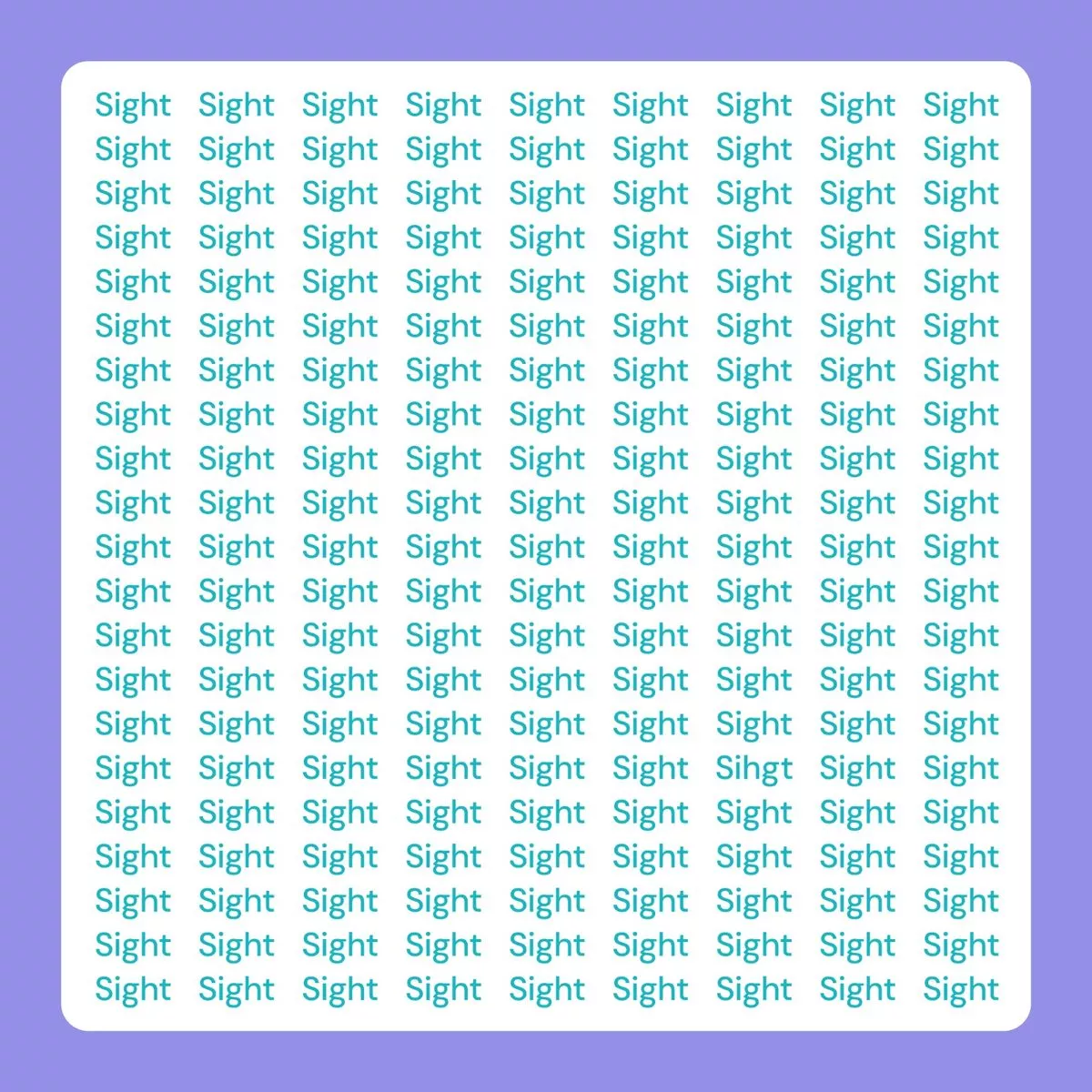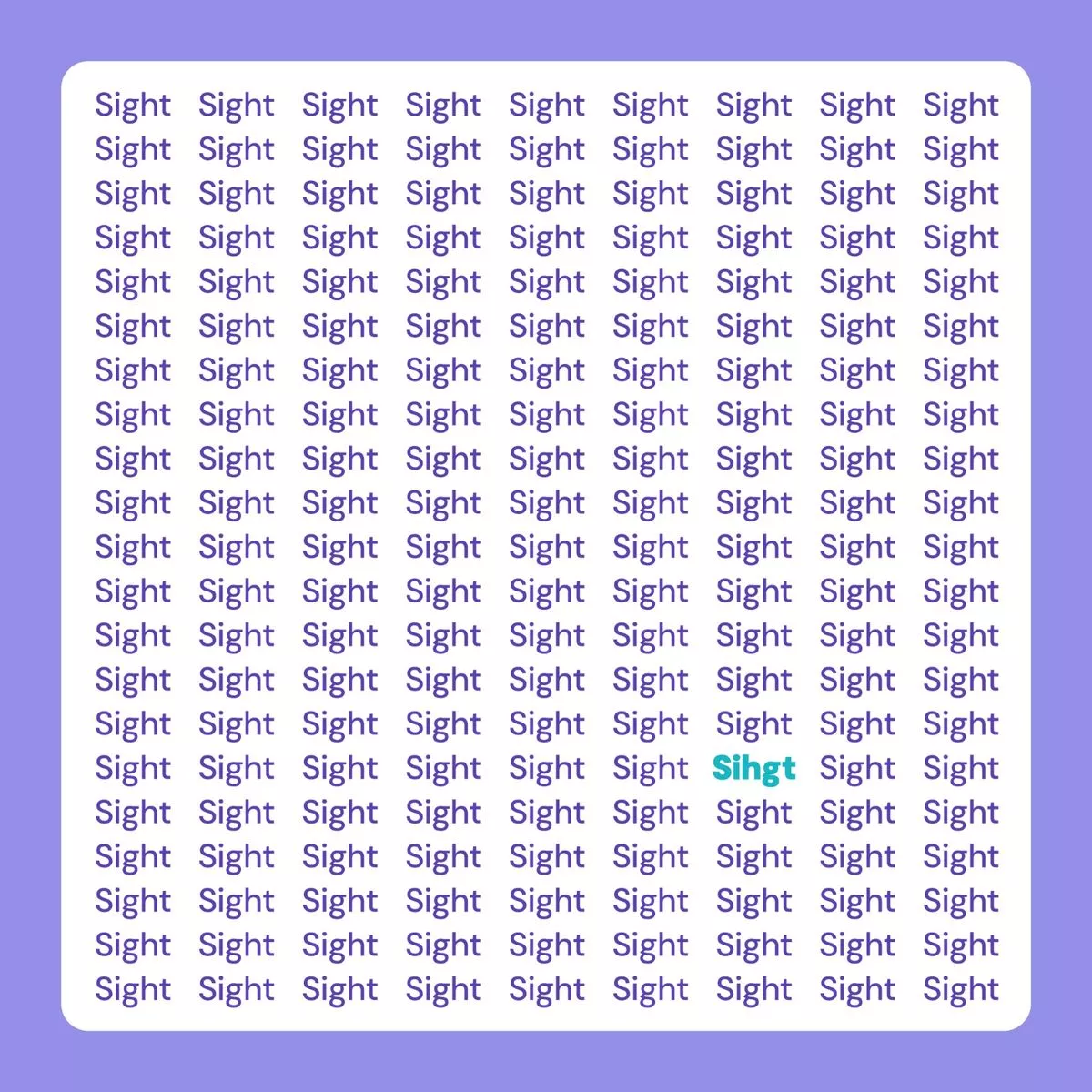This brainteaser is all about finding a sneaky spelling mistake hidden among rows of the word “SIGHT.” The challenge was created by Lenstore to test your eyesight and attention to detail. Brainteasers and optical illusions are popular ways to challenge our minds and have some fun. They come in various forms, from puzzles that test our intelligence to visual illusions that trick our perception. This particular brainteaser aims to put your eyesight to the test while also giving your brain a workout.

In the image, there are 21 rows containing the word “SIGHT” written repeatedly. However, somewhere within these rows, there’s a subtle mistake—a misspelling of the word “SIGHT” as “SIHGT.” Your task is to locate this incorrect spelling amidst the sea of correctly spelled words.
According to the creators of the brainteaser, many people find it challenging to spot the misspelled word. In fact, one in five individuals admitted defeat and gave up before finding the mistake. Some sharp-eyed individuals managed to solve the puzzle in under 30 seconds, showcasing their keen observation skills.
As you scan through the rows of the word “SIGHT,” you may find yourself getting more and more perplexed. The longer you look, the trickier it becomes to pinpoint the error. But don’t lose hope! If you’re struggling to find the mistake, try focusing your attention towards the right side of the image—it might help you spot the elusive misspelling.
Even if you’re unable to find the mistake right away, don’t feel discouraged. You’re not alone in finding these types of puzzles challenging. In fact, many people struggle to identify the misspelled word hidden among the rows of “SIGHT.” But remember, the more you challenge yourself with brainteasers like this, the better you become at honing your observation and problem-solving skills.

I hope you might solve the puzzle in 30 seconds. Engaging in activities that stimulate your brain, such as solving puzzles and optical illusions, can have positive effects on cognitive function. Recent research conducted by the University of Exeter and King’s College London suggests that participating in such brain-teasing exercises may even help improve brain function and potentially slow down the aging process by up to a decade.
Leave a Reply